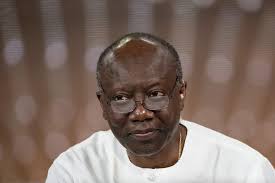By Alex Ababio
Efforts by the Government of Ghana to extradite former Finance Minister Ken Ofori-Atta from the United States have taken a significant step forward, as sources within the U.S. Department of Justice and the Federal Bureau of Investigation (FBI) have reportedly affirmed that the request does not constitute political persecution or a witch-hunt.
According to media reports citing insiders at the U.S. Embassy in Accra, American law enforcement authorities have reviewed Ghana’s request and determined that the allegations facing the former minister are legitimate. The FBI’s stance clears a critical early hurdle in the extradition process, bolstering the Ghanaian government’s attempts to bring Mr. Ofori-Atta home to answer questions regarding his tenure in office.
Mr. Ofori-Atta, who is currently receiving medical treatment in the United States, has publicly accused the Office of the Special Prosecutor (OSP) of violating his fundamental human rights. He claims that the ongoing investigations — which include allegations of financial malfeasance and causing financial loss to the state — are politically motivated.
In addition to the OSP, Ghana’s Economic and Organised Crime Office (EOCO) and the National Intelligence Bureau (NIB) have also expressed interest in questioning the former finance chief. The OSP, in particular, has twice declared Ofori-Atta a wanted man after he failed to respond to invitations for interrogation. The Office subsequently initiated formal extradition procedures through the Attorney General and Minister for Justice.
Under U.S. and international law, individuals who fear persecution or political targeting may seek protection or relief through immigration and human rights frameworks. However, in this case, American officials appear unconvinced by claims of political victimization.
The extradition process is legally rigorous and often lengthy. It requires the cooperation of the host country’s legal and investigative authorities, and suspects can contest the process in court. But U.S. cooperation hinges on the legitimacy and good faith of the requesting government, a condition the FBI now believes Ghana has met.
Beyond its domestic responsibilities — including investigations into terrorism, cybercrime, corruption, white-collar offenses, and organized crime — the FBI operates through Legal Attachés stationed in U.S. embassies worldwide. These units coordinate cross-border criminal investigations, including extradition matters.
Meanwhile, Ken Ofori-Atta has filed multiple legal challenges in an attempt to revoke his designation as a fugitive and to block any attempts to extradite him. He insists that the state is violating his civil liberties, and maintains that the charges are part of a broader campaign of political retribution.
With the FBI’s initial backing of Ghana’s case, attention now turns to the judicial phase of the extradition process, which could determine whether Mr. Ofori-Atta will eventually be compelled to face justice at home.

